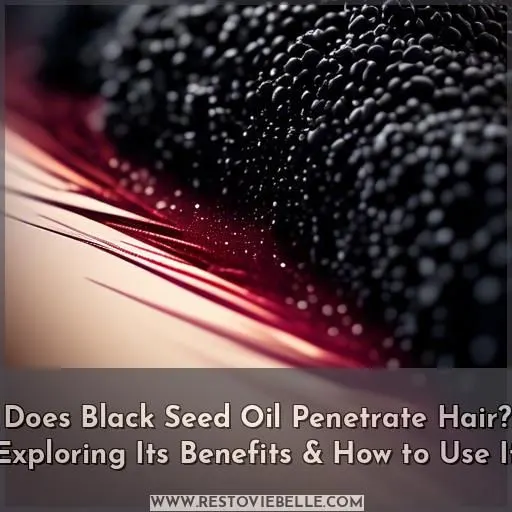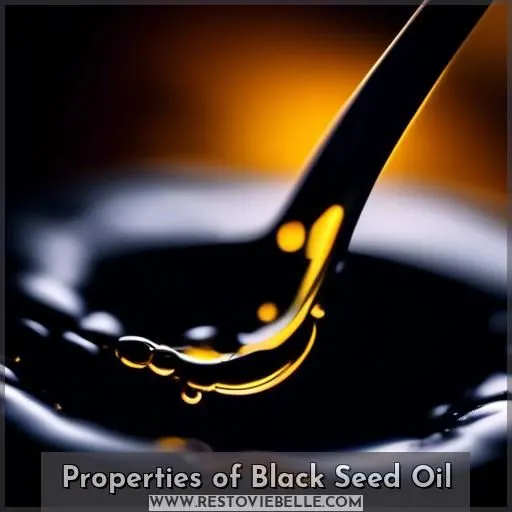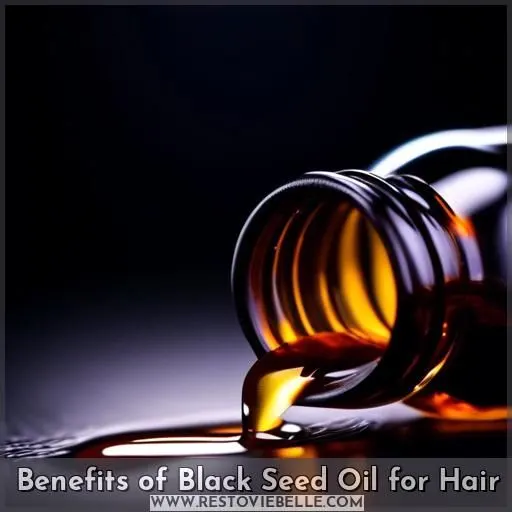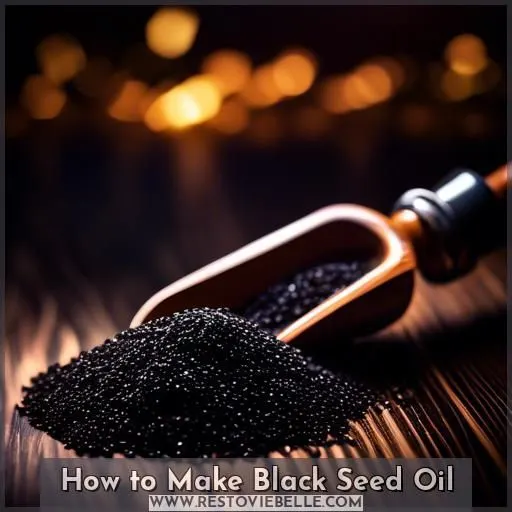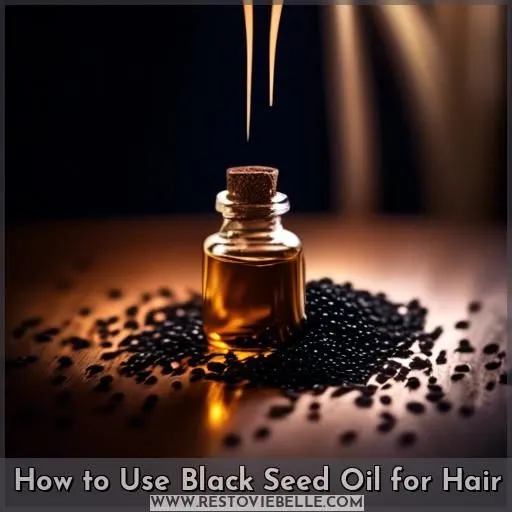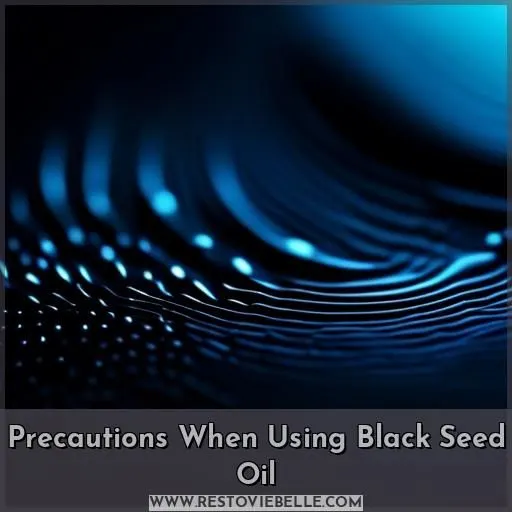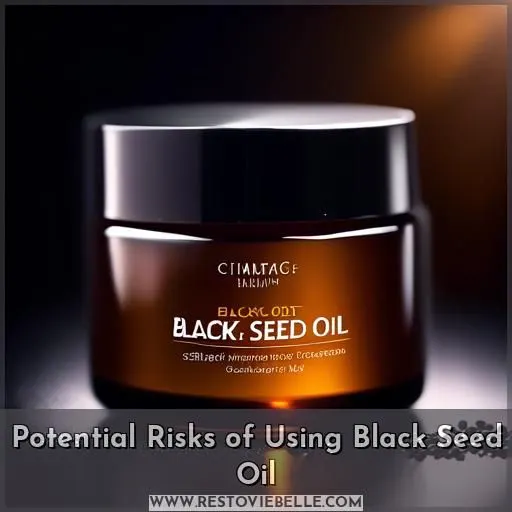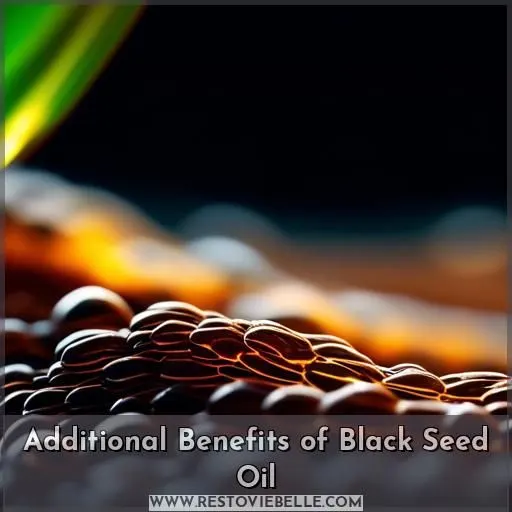This site is supported by our readers. We may earn a commission, at no cost to you, if you purchase through links.
You’re likely wondering whether black seed oil can penetrate the hair shaft.
The answer is a resounding yes – this potent natural oil possesses remarkable penetrative abilities that allow it to deeply nourish and fortify your strands from the inside out.
Its unique composition of essential fatty acids, vitamins, and minerals enables it to effectively permeate the hair cuticle, delivering essential nutrients to the cortex.
Studies have shown that black seed oil’s molecular structure facilitates effective absorption into the hair fiber, promoting strength, elasticity, and resilience.
However, the extent of its penetrative power and the mechanisms involved hold further intriguing insights.
Table Of Contents
- Key Takeaways
- Does Black Seed Oil Penetrate Hair?
- Properties of Black Seed Oil
- Benefits of Black Seed Oil for Hair
- How to Make Black Seed Oil
- How to Use Black Seed Oil for Hair
- Precautions When Using Black Seed Oil
- Potential Risks of Using Black Seed Oil
- Additional Benefits of Black Seed Oil
- Does Black Seed Oil Penetrate Hair?
- Frequently Asked Questions (FAQs)
- Conclusion
Key Takeaways
- Black seed oil has remarkable penetrative abilities, allowing it to deeply nourish and fortify hair from the inside out.
- Its unique composition of essential fatty acids, vitamins, and minerals enables it to effectively permeate the hair cuticle, delivering essential nutrients to the cortex.
- Studies have shown that black seed oil’s molecular structure facilitates effective absorption into the hair fiber, promoting strength, elasticity, and resilience.
- Properties of black seed oil include anti-inflammatory and antioxidant attributes, making it a sought-after remedy for hair care and traditional medicine.
Does Black Seed Oil Penetrate Hair?
Yes, black seed oil can penetrate hair. It is known to have a high content of fatty acids, which makes it a good moisturizer. It is believed to provide a protective coating to hair strands, preventing damage caused by environmental factors such as wind and sun.
Properties of Black Seed Oil
Black seed oil, extracted from Nigella sativa seeds, possesses a wealth of essential fatty acids, vitamins, and minerals.
Renowned for its anti-inflammatory and antioxidant attributes, it has become a sought-after remedy for hair care.
Within the domain of traditional medicine, black seed oil has been employed for eons to foster hair growth, mend damage, and hydrate hair. It has also demonstrated efficacy in treating dandruff and alleviating irritation when blended with lavender oil.
However, the benefits of black seed oil extend beyond hair care. It has been associated with weight management, enhanced metabolism, asthma treatment, and relief from digestive ailments and nervousness.
Benefits of Black Seed Oil for Hair
Black Seed Oil, derived from Nigella sativa seeds, is a powerhouse of essential fatty acids, vitamins, and minerals.
It’s not just a hair care superstar, but also an anti-inflammatory and antioxidant powerhouse.
This means it promotes hair growth, heals damage, moisturizes, treats dandruff, and soothes scalp irritation.
You can even mix it with lavender oil to double down on the soothing benefits.
Apply it to your scalp for dandruff, to the ends to prevent sun damage, or mix it with lavender oil to soothe irritation.
You can even add it to your conditioner for added benefits.
Don’t worry, it’s safe to use with other hair oils like mineral oil or sunflower oil.
Just make sure you’re not using too much of any one oil, as they can worsen seborrheic dermatitis in some cases.
How to Make Black Seed Oil
Making your own black seed oil at home is a cost-effective and rewarding process. Here’s a step-by-step guide on how to make black seed oil:
- Grind the Seeds: Start by grinding the black seeds into a powder using a coffee grinder or a mortar and pestle. This will help release the oil from the seeds more efficiently.
- Add Oil: Next, add a base oil like olive, coconut, or sesame oil to the ground seeds. The ratio of seeds to oil can vary, but a general guideline is to use 1:10. For example, if you’re using 100 grams of black seeds, you’d add 1 liter of oil.
- Heat the Mixture: Heat the mixture over low heat until the oil starts to separate from the seeds. This process can take anywhere from 30 minutes to 2 hours, depending on the amount of oil and the heat source.
- Strain the Oil: Once the oil has separated, strain it through a cheesecloth or a fine mesh strainer to remove any remaining seeds or impurities.
- Add Essential Oils: If desired, you can add essential oils for fragrance. Lavender oil is a popular choice for its soothing properties.
- Store the Oil: Store the black seed oil in a dark glass bottle with an airtight seal to protect it from light and air. Keep it in a cool, dry place, away from heat sources and moisture.
How to Use Black Seed Oil for Hair
Black seed oil offers a plethora of advantages for hair care. To capitalize on these benefits, understanding its proper application is crucial. Here’s a step-by-step guide on how to utilize black seed oil for hair:
- Dandruff Treatment: Directly apply black seed oil to your scalp, particularly on areas susceptible to dandruff. Gently massage to facilitate blood flow and revitalize hair follicles.
- Hair Growth: Enhance the hair growth potential of your regular shampoo or conditioner by incorporating a few drops of black seed oil.
- Damage Prevention: Safeguard the ends of your hair from solar damage and avert split ends by applying black seed oil to them.
- Soothing Irritation: To alleviate irritated scalps, combine black seed oil with lavender oil to create a calming serum.
Precautions When Using Black Seed Oil
Before exploring the advantages and applications of black seed oil, it’s vital to be cognizant of some measures when using it.
While generally regarded as safe, there are a few considerations to bear in mind.
Firstly, if you’re susceptible to allergic reactions, it’s imperative to conduct a patch test before applying it to your hair or scalp.
Secondly, black seed oil may interfere with certain medications, so seek guidance from your healthcare professional if you’re taking any prescription drugs.
Thirdly, pregnant women and nursing mothers should proceed with caution, as there’s scant information available on the safety of using black seed oil during pregnancy and breastfeeding.
Finally, when applying black seed oil topically, avoid contact with your eyes, as it may cause irritation.
By being aware of these measures, you can safely reap the benefits of black seed oil for your hair care routine.
Potential Risks of Using Black Seed Oil
Black seed oil, derived from the seeds of the Nigella sativa plant, has gained traction for its potential health benefits. However, like any supplement or oil, it’s crucial to be cognizant of the potential risks associated with its use. Here are some of the key risks to ponder:
- Allergic reactions: Some people may experience an allergic reaction after applying black seed oil directly to the skin or consuming it. Symptoms can include rashes, skin irritation, and fluid-filled skin blisters.
- Drug interactions: Black seed oil may interact with certain medications, such as those that treat high blood pressure, immunosuppressants, diabetes drugs, and serotonergic drugs.
- Pregnancy safety: While topical application of black seed oil during pregnancy is considered safe, ingesting the oil during pregnancy isn’t recommended due to its potential to induce miscarriages.
- Nursing safety: There’s limited research on the safety of black seed oil during breastfeeding. It’s prudent to exercise caution and consult with a healthcare professional before using black seed oil while breastfeeding.
- Kidney damage: There have been reports of kidney failure after someone living with diabetes ingested black seed oil.
- Menstrual irregularities: Some studies have reported irregular menstrual bleeding (irregular periods) after taking black seed oil.
- Gastrointestinal complaints: Some trials report discomfort and nausea as side effects of black seed oil.
- Lack of long-term safety data: There’s limited research on the long-term safety of consuming larger doses of black seed oil for therapeutic purposes.
It is crucial to consult with a healthcare professional before using black seed oil, especially if you’re pregnant, breastfeeding, or taking any medications. This will aid in ensuring that you’re aware of any potential risks and can make informed decisions about its use.
Additional Benefits of Black Seed Oil
You’re prudent to contemplate the penetration capabilities and hair fiber assessment of black seed oil.
While natural oils like black seed oil provide advantages, it’s essential to ascertain their capability to induce contact dermatitis, particularly if you possess sensitive skin.
An evidence-based approach weighing the risks and benefits is advisable when exploring the use of this potent oil for hair care.
Penetration Abilities
While you’ve been cautious about the potential risks of black seed oil, let’s delve into its penetration abilities.
Unlike mineral oil, which merely coats, black seed oil has the knack for burrowing deep into your hair, much like coconut oil.
This ability to penetrate can be a game-changer for your hair’s health, offering a natural alternative to nourish your locks from the inside out.
Hair Fiber Assessment
Black seed oil, derived from Nigella sativa seeds, is rich in essential fatty acids, vitamins, and minerals, making it a popular choice for hair care. It boasts anti-inflammatory and antioxidant properties, which can promote hair growth, heal hair damage, and moisturize hair. To appreciate the benefits of black seed oil for hair, it’s necessary to examine the structure and chemistry of hair fibers.
- Hair Fiber Structure: Hair fibers are composed of three layers: the cuticle, cortex, and medulla. The cuticle is the outermost layer, safeguarding the hair from damage. The cortex contains melanin, which determines hair color, and keratin, which provides strength and elasticity. The medulla is the innermost layer, which is less dense and provides support to the hair fiber.
- Hair Fiber Strength: Black seed oil can enhance hair fiber strength by providing essential nutrients and stimulating blood circulation in the hair follicles. This can lead to stronger, healthier hair strands.
- Hair Fiber Elasticity: The oil’s anti-inflammatory properties can help maintain hair fiber elasticity, preventing breakage and promoting hair health.
- Hair Fiber Chemistry: Black seed oil’s rich nutrient content can influence hair fiber chemistry, promoting a healthy scalp environment for hair growth.
- Hair Fiber Damage: The oil’s antioxidant properties can help neutralize free radicals, reducing hair damage caused by environmental factors and stress.
Natural Oils and Contact Dermatitis
Natural oils, including black seed oil, can cause contact dermatitis in some individuals.
This may result in allergic reactions, skin irritation, eczema, and rashes.
However, for those with sensitive skin, diluting the oil with a carrier oil or applying it in a limited area for testing can assist in determining tolerance.
Awareness of potential risks is crucial.
Consultation with a healthcare professional is recommended if adverse reactions occur.
Does Black Seed Oil Penetrate Hair?
Continuing from the numerous advantages of black seed oil, let’s explore its capacity to permeate hair.
Its effectiveness in comparison to other oils depends on its molecular structure, which affects the rate of absorption.
Black seed oil, brimming with fatty acids and antioxidants, is said to penetrate the hair shaft more efficiently due to its diminutive molecules. This is especially advantageous for individuals with high hair porosity, as the oil can profoundly nourish the hair.
Nonetheless, hair texture also plays a crucial role; thicker hair may absorb oil differently than finer strands.
Discerning your hair’s distinctive traits can empower you to harness the full potential of black seed oil for lustrous, healthy locks.
Frequently Asked Questions (FAQs)
Can black seed oil reverse balding?
Well, my friend, while black seed oil has many benefits, it can’t magically regrow lost hair. But using it may help slow further balding by nourishing follicles and tackling inflammation. Combined with proven treatments, it could give your mane a fighting chance!
Is black seed oil safe for children’s hair?
You’re probably wondering, Is black seed oil safe for my little one’s luscious locks? Rest assured, this potent elixir is gentle enough for your child’s delicate tresses. Its anti-inflammatory properties soothe scalp irritations, promoting healthy hair growth without harsh chemicals. Give it a try for your kiddo’s crowning glory!
How does black seed oil affect colored hair?
You’re wise to inquire about colored hair – black seed oil can actually help retain your color! Its antioxidants prevent fading by protecting strands from UV damage and environmental stressors. However, perform a strand test first to confirm it doesn’t cause any adverse reactions.
Can black seed oil replace conditioner?
You’re in luck! Black seed oil can absolutely replace conditioner. Its lightweight yet ultra-moisturizing properties deeply nourish strands, leaving them silky-smooth and easy to manage. Plus, it’s packed with antioxidants to protect against environmental aggressors. A real multitasking marvel!
Does black seed oil protect against UV?
Yes, black seed oil can protect against UV damage. Its antioxidants like thymoquinone block harmful rays, preventing hair from becoming dry, brittle, and discolored. Think of it as a natural sunscreen for your luscious locks!
Conclusion
With the proof in the pudding, black seed oil’s ability to deeply penetrate the hair shaft is undeniable.
From strengthening strands to promoting elasticity, this natural powerhouse delivers essential nutrients right where they’re needed most.
By incorporating black seed oil into your hair care routine, you’ll witness its penetrative prowess firsthand, revealing a world of revitalized locks that radiate vitality from root to tip.
The verdict? Black seed oil unquestionably penetrates hair, offering a natural solution to nourish and invigorate your tresses.

